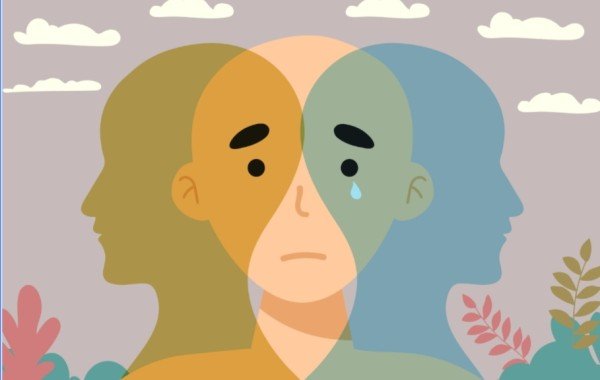/ Globe PR Wire /

If you or a loved one is facing both mental health issues and addiction at the same time, it can feel overwhelming. You might wonder: “Which problem do I fix first?” or “Why does treating one issue never seem to fix the other?”
The truth is, you don’t have to choose. Dual Diagnosis Treatment is the answer that bridges the gap between mental health and addiction recovery.
In this post, we’ll break down what dual diagnosis really means, how it works, and why it’s so important for true healing.
What Is Dual Diagnosis Treatment?
Dual Diagnosis Treatment simply means treating mental health conditions and substance use disorders at the same time, with one connected approach.
For example, someone might be dealing with depression and alcohol addiction, or anxiety and opioid addiction. Rather than treating just the addiction or just the mental health problem, dual diagnosis centers focus on healing both sides of the struggle.
This approach is important because these two issues often feed into each other.
If you treat only the addiction but not the depression, for example, it’s easy to relapse when those sad feelings come back.
Dual diagnosis rehab programs understand that healing must happen on both fronts — emotional and physical.
Why Traditional Treatment Often Falls Short
In the past, people were often required to “get clean” before they could receive mental health support.
But that rarely worked for long.
If the underlying issues like PTSD, bipolar disorder, or schizophrenia weren’t treated, people often turned back to substances to cope.
That’s why integrated treatment programs were developed — to finally treat the whole person, not just the addiction.
Signs You Might Need Dual Diagnosis Treatment
It’s not always easy to know when dual diagnosis rehab is the right choice.
Here are a few signs that it might be time to consider it:
- You use drugs or alcohol to manage your emotions or mental health symptoms.
- You’ve been diagnosed (or suspect you have) anxiety, depression, or another mental illness.
- You’ve tried addiction recovery before but relapsed because emotional issues weren’t addressed.
- You experience severe mood swings, anger, sadness, or fear along with substance use.
- You feel hopeless, isolated, or overwhelmed — even during periods of sobriety.
If any of these sound familiar, a co-occurring disorders program could offer the right support and tools you need.
How Dual Diagnosis Treatment Works
Step 1: Comprehensive Assessment
At a dual diagnosis center, treatment starts with a full evaluation.
You’ll meet with therapists, psychiatrists, and medical doctors to understand:
- Your mental health history
- Your addiction history
- Any physical health issues
- Your personal goals for recovery
This step helps create a personalized roadmap for your healing journey.
Step 2: Integrated Therapy
Dual Diagnosis Treatment typically combines several proven therapies:
- Cognitive Behavioral Therapy (CBT): Helps you recognize and change negative thought patterns.
- Medication-Assisted Treatment (MAT): Used for stabilizing mental health symptoms or easing addiction withdrawal symptoms.
- Group Therapy: Builds community, reduces isolation, and shares coping strategies.
- Individual Counseling: Focuses on deep personal healing.
- Family Therapy: Strengthens relationships and builds a strong support system at home.
Some programs also offer holistic options like yoga, mindfulness training, nutrition counseling, and art therapy to heal the mind and body together.
Step 3: Relapse Prevention Planning
A huge part of dual diagnosis rehab is creating a plan to avoid relapse.
You’ll work with counselors to:
- Identify your personal triggers
- Build healthy coping skills
- Develop a strong network of support
- Set up ongoing therapy and support group participation after treatment
When you address both your addiction triggers and your emotional pain, staying sober becomes much more possible — and life gets a lot brighter.
The Benefits of Dual Diagnosis Treatment
Choosing dual diagnosis treatment offers so many important advantages:
1. Better Long-Term Outcomes
People who go through integrated care are more likely to stay sober and mentally healthy compared to those who only treat one issue at a time.
2. Treats the Root Cause
Integrated treatment programs don’t just put a band-aid on addiction. They help uncover and heal the deeper emotional wounds that often lead to substance use.
3. Lower Risk of Relapse
By treating mental health symptoms like depression, PTSD, or anxiety, you lower the chances of using substances to self-medicate.
4. Personalized, Compassionate Care
Dual diagnosis rehab centers offer individualized treatment plans. They see you as a whole person, not just a diagnosis.
Finding the Right Dual Diagnosis Treatment Center
When searching for a treatment center, make sure to find one that truly specializes in dual diagnosis treatment, not just addiction treatment.
Look for places that:
- Have licensed mental health professionals AND addiction counselors
- Offer evidence-based therapies like CBT and DBT
- Provide medication management if needed
- Focus on relapse prevention
- Support aftercare, like alumni programs or sober living homes
Dual Diagnosis and Common Mental Health Conditions
Many mental health conditions can occur alongside addiction, including:
- Depression: Feelings of sadness and hopelessness that don’t go away.
- Anxiety: Constant worry, fear, or panic attacks.
- Bipolar Disorder: Extreme mood swings from very high to very low.
- PTSD: Emotional struggles after a traumatic event.
- Schizophrenia: Difficulty understanding reality.
Treating these disorders alongside addiction is not just important — it’s necessary for real recovery.
Conclusion: You Deserve Full Recovery — Inside and Out
If you’re battling both mental health struggles and addiction, it can feel like you’re stuck in a loop.
But there’s a real path out — and it starts with Dual Diagnosis Treatment.
By addressing both sides of the problem at once, you can truly heal, grow, and reclaim your life.
Don’t wait — you deserve a future filled with hope, health, and happiness.
The post Mental Health and Addiction: How Dual Diagnosis Treatment Bridges the Gap appeared first on Insights News Wire.
